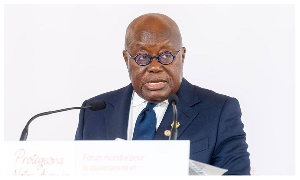Abigail Edem Hunu, the Programme Assistant of the United Nations Population Fund (UNFPA), has advised parents to empower children, especially girls to say no to sexual harassments and unnecessary physical touches.
She said it was unfortunate that children in many parts of Africa including Ghana were taught from the onset to be overly respectful and desist from expressing their opinions among adults.
Ms Hunu said that sometimes made it difficult for children to decline requests about their own bodies from adults even if it sought to have repercussions on their lives.
She gave the advice when the UNFPA and the Ministry of Gender, Children and Social Protection organised a five-day sensitisation workshop in Accra, to train market women and men as paralegals to provide support and guidance to individuals who needed legal, psychosocial, and counselling support on issues that affected their lives.
Ms Hunu cautioned men to learn to control themselves when it came to sexual activities with women and respect their opinions in order not to go against the provisions of the law against defilement and rape.
“You will have no varied excuse that the woman’s dressing enticed you to take advantage of her. If you see your mother naked, will you try to sleep with her? You won’t unless you have a mental problem. In your mind, you know that is your mother and so you won’t try that.
“It is the same way you have to bear in mind that you cannot sleep with someone unless the person has given you the consent or permission to do so,” she said.
Madam Afua Brown-Eyeson, a Legal Practitioner, speaking about the Domestic Violence Act 2007 (Act 732), said domestic violence included slapping, hitting, pushing, choking, skin spitting, restraining, use of weapons, forced labour, deprivation of nourishment, pouring of acids, strangling and pulling of hair.
She said many denials were also acts of domestic violence such as denial of household money, controlling belongings and spending decisions, and preventing partner from using her resources or financial resources for her own growth and development.
Others were deprivation of partner from having any source of income, seizure or borrowing of partner finances, neglecting partner and family financial needs, damaging and destruction of someone’s property and forcing someone to work against his or her will.
Mrs Melody Darkey, a Legal Practitioner, taking the trainees through the processes of mediation as paralegals through an Alternative Dispute Resolution form, said the first step was giving an opening statement about the purpose of gathering.
The rest were giving parties opportunity to tell their stories, identifying the issues/prioritising issues and interests, searching for solution/innovation and problem solving and coming to an agreement and a closure of the case.
She advised them not to be bias or take stands in the course of executing their tasks as paralegals to get all parties to cooperate and get satisfaction at the end of the process.
Mrs Darkey cautioned them not to attempt settling criminal cases like rape, murder, defilement, incest and other forms of physical abuse at home.
She asked them to direct parties to consult appropriate institutions like the police to handle such matters.
Ms Gloria Kankam, a Gender Expert, appealed to the trainees and the entire public to desist from being patriarchal gatekeepers and not disturb the peace their families enjoyed over sharing of deceased's properties.
She asked them to bear in mind their role to help to prevent, protect, prosecute and partner appropriate bodies to protect the rights of the vulnerable in the society.
General News of Friday, 26 March 2021
Source: GNA

















